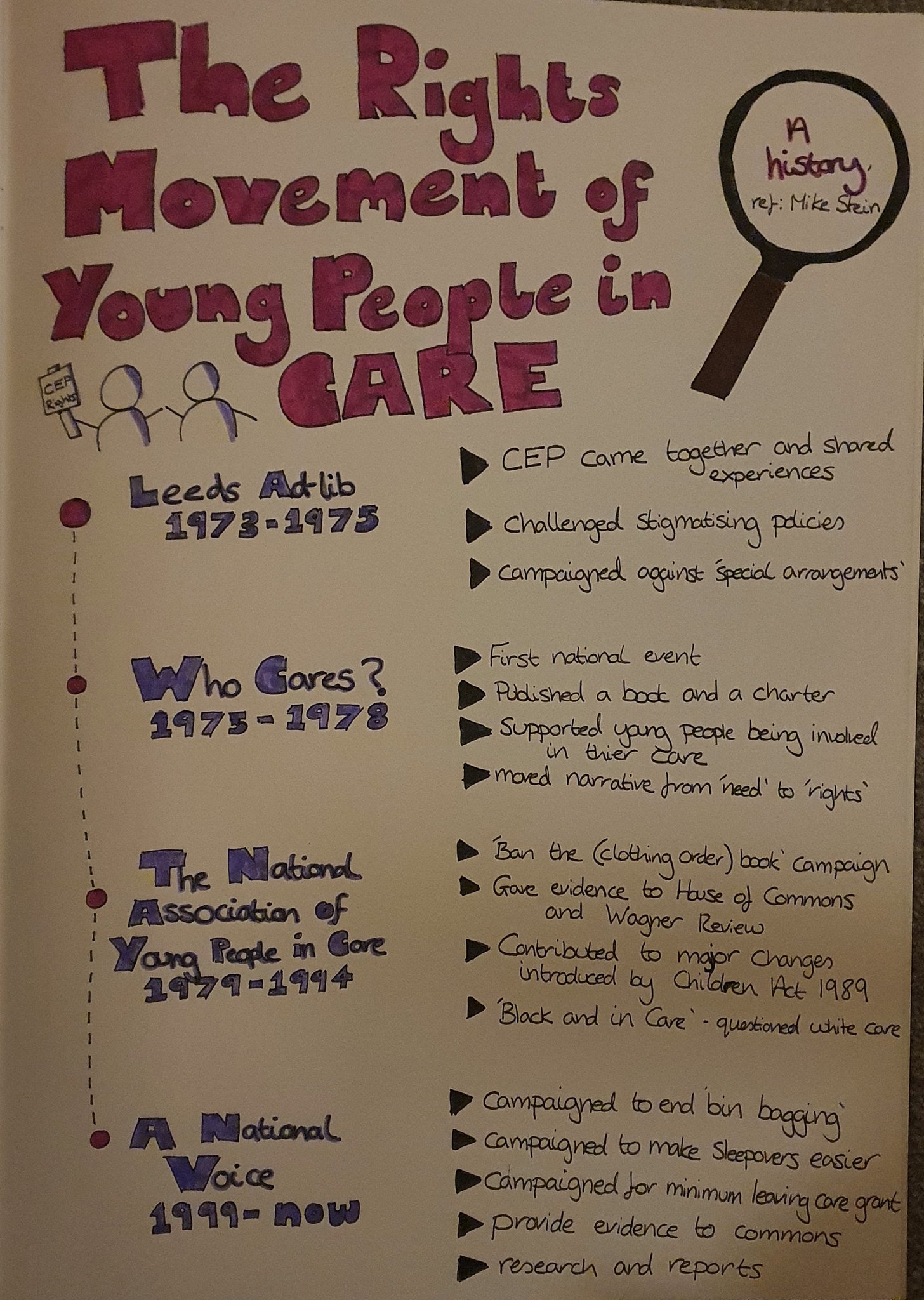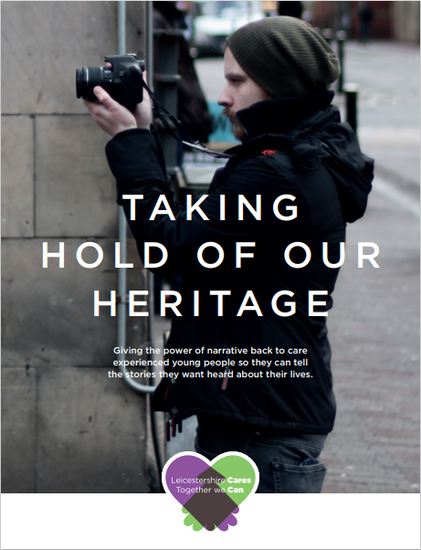
reclaim our history
This is a page where we will be collecting resources to help us understand our transgenerational history, heritage and ancestry and care rights movement.
A brief history of the UK care system: Drive Forward
This short article is an attempt to shed some light on the history of institutional care in Britain. I will draw attention to some of the most important Legal Acts and Figures and provide a rough timeline from the first traces of out-of-home care in 1552 (De Wilde, 2018) to the beginning of our present care system in the 20th century.
Care Less Lives - The story of the rights movement of young people in care
Care Less Lives tells the story of the rights movement of young people in care in England. It relates how, from 1973, young people came together to talk about their care, support each other and campaign to improve their lives in care.
Coram Story: Our story of care timeline
From 1668, the birth of Thomas Coram, to the work we do today, discover the story of care. We explore how care has changed and evolved through the years in the UK, and the development of the Foundling Hospital, now known as Coram. While the laws and acts mentioned in the early timeline mainly apply to the UK from the 20th century onwards many laws referred to include only England and Wales, or England. We recommend referring to the primary legislation and subsequent amendments for more detail.
Former Children's Homes
A warm welcome to the Former Children's Homes website. Having started in 2011, this is the first dedicated encyclopaedia of life in former children's homes and orphanages. Over the years, thousands and thousands of children spent time in these homes and yet we know very little about what life was like for them.
Our history: Together Trust
Our story begins in 1870 with two Sunday school teachers, Leonard Kilbee Shaw and Richard Bramwell Taylor. While volunteering at St Ann’s Ragged school, Manchester, they encountered the harsh realities facing children in Victorian Britain. Deeply moved by this experience, they worked tirelessly to give all young people a better start at life. 150 years later, we still share their mission.
The British Betrayal of Childhood: Challenging Uncomfortable Truths and Bringing About Change
Sir Al Aynsley-Green demands to know why outcomes for the UK’s children for health, education, social care, youth justice and poverty remain among the worst in the developed world. He draws global comparisons and offers astute observations of the realities of being a young person in Britain today, to show how government policies have been shamefully failing children on a grand scale.
The History of the Care System and the Care Leavers Association
The history of the Care System has helped to shape and grow the Care Leavers Association over the years. At the CLA we have a strong belief that acknowledging the past is key to improving the future. Below is information on the history of the Care System, which has helped to form the CLA and examples of our historic work at the CLA.
Children's Homes: A History of Institutional Care for Britain’s Young
What image does the word orphanage conjure up in your mind? A sunny scene of carefree children at play in the grounds of a large ivy-clad house? Or a forbidding grey edifice whose cowering inmates were ruled over with a rod of iron by a stern, starched matron? In Children's Homes, Peter Higginbotham explores the history of the institutions in Britain that were used as a substitute for childrens natural homes. From the Tudor times to the present day, this fascinating book answers questions such as: Who founded and ran all these institutions? Who paid for them? Where have they all gone? And what was life like for their inmates?
Coram Voices Through Time: The Story of Care
Voices Through Time: The Story of Care is an ambitious project to digitise the earliest part of Coram’s historic archive, going all the way back to 1739 when it was established as the Foundling Hospital, the country’s first home for children whose mothers could not take care of them.
Foundling: Found Julian Brown and Coram
Foundling: Found is a podcast series, hosted by care-leaver Julian Brown, that investigates the real stories of care, from the Foundling Hospital archives dating back to 1739, right through to the present day. Setting the stigma surrounding those with care experience against those real stories. Over the course of 12 episodes, Julian will be joined by some very special guests as he uncovers the fact and the individuals behind the media and literature fiction.
The Children's Homes Website
The Children's Homes website aims to provide information on all the many and varied institutions that became home for thousands of children and young people in Britain. They range from orphanages, homes for those in poverty, or with special needs, through to reformatories, industrial and approved schools, training ships, and hostels. As well as each home's location, history etc. the site includes many maps, census listings, and historic images of the buildings and their inmates.
Memories of the Foundling Hospital
Former pupils Lydia Carmichael and John Caldicott take us back to a different time and place. Lydia and John both grew up in the Foundling Hospital during the Second World War and in the film, they show us around the school building and tell us their personal stories and journeys. After the screening, we will be joined by Saffron Cutts, Coram’s Youth Engagement Intern, who will tell us her reaction to the film and discuss it with John and Lydia.
Taking Hold of Our Heritage the digital book - Leicestershire Cares
This book project gave the narrative power back to care experienced young people so they can tell the stories they want heard about their lives. Care experienced young people are often required to talk about their traumatic past to professionals, support services and sometimes their peers. Telling the same stories over and over again can start to imprint on their identity and heritage. Young people in care often move several times which can result in photographs and family keepsakes being misplaced and lost.
The Children’s rights Movement and the Charity sector
The close relationship between the care community and the Charity sector goes way back in time and it has undoubtedly brought many benefits – at times operating as a huge support to the work of the care experienced advocacy movement. But there are also examples of how its proximity and at times the outright control over our lives during the difficult but important task of self-determination has proved a largely deeply uncomfortable experience.














